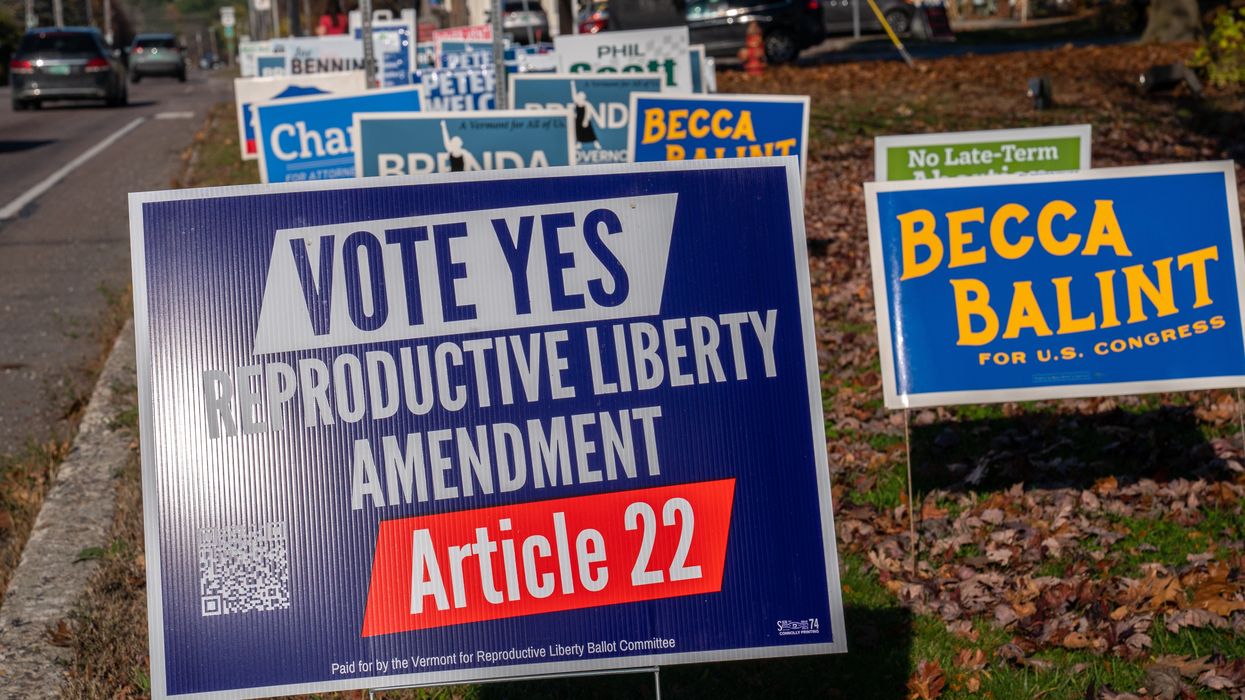Lewitus is a research analyst at the University of Maryland’s Program for Public Consultation.
The reputation of election polls has taken a hard hit in the last several years due to some major mis-calls of close races. Some people have questioned polls on public policy as well. But the results of ballot initiatives over the last decade, including those just passed in Ohio and Maine, have been consistently in line with the polls.
This confirms that policy polls can and should be an important tool for policymakers to use in a well-functioning democracy. That is, of course, only if legislators pay attention to them and value the will of the majority over their own wishes, which some lawmakers have been reluctant to do.
The Ohio ballot measure to enshrine into the state Constitution the legality of abortions, up until fetal viability, passed with 57 percent of voters’ support. A poll of Ohio voters conducted one month before the vote found 58 percent support for the ballot measure. A national survey conducted in 2022 by the University of Maryland’s Program for Public Consultation found that 57 percent opposed criminalizing abortion, including 52 percent in very red congressional districts. Other surveys in 2022 found that 61 percent believed abortion should be legal in all or most cases and 64 percent opposed the overturning of Roe v. Wade.
The level of support for abortion rights found in polls matches up to outcomes in five other ballot measures last year, when adjusted to match each state’s partisan and demographic makeup.
Even for an issue that has not been nearly as salient or polled-on as abortion, such as the campaign finance reform initiative in Maine, polling has proved accurate. Eighty-six percent of voters in Maine supported prohibiting foreign spending to influence ballot measures and candidate elections. A 2022 survey by PPC found roughly the same level of support nationwide (79 percent), with little variation between very red and very blue districts.
On numerous other issues, polling has been congruent with ballot results. Polls have shown consistent majority support for term limits, decriminalizing marijuana and increasing the minimum wage. All ballot measures on those policy proposals over the last decade have passed.
Policy polls are not only just as accurate as ballot initiatives in revealing public opinion, but they are far more cost-efficient. The average cost of getting a measure on the ballot is $4 million, and then there are the administrative costs for the government, as well as the millions of dollars spent by groups trying to influence the outcome.
Legislators may believe that national polling is not indicative of public opinion in their area because their constituents are particularly unique. However, public opinion research has shown that this is very unlikely. PPC analyzed dozens of large-sample surveys and found the differences between very red and very blue congressional districts is much less than policymakers imagine. When support for a position was 60 percent or more nationally, there was always majority support in both very red and very blue districts.
For many issues, however, standard polling may be inadequate. Citizens often do not have enough information to make an informed decision, or the proposed policy may be too detailed or nuanced to accurately describe in a standard poll. Fortunately, there are forms of “public consultation” that give representative samples of citizens the information and range of arguments necessary to understand the issue. Public consultation surveys do this in an online format, which is inexpensive and fully transparent. Events like citizen assemblies are also a well-tested option, as are deliberative polls and myriad other methods used in democracies across the world.
What is striking is that on many issues these public consultation methods reveal a striking amount of bipartisan common ground, far more than legislatures tend to find. Voice of the People has identified more than 200 bipartisan common ground positions on a wide range of policy positions that divide Congress on partisan lines. When the parties are polarized, the people may offer a path forward.
Ballot initiatives have proven to be a good way to give the people a voice. But if legislatures were really doing their job, they may not be as necessary. When an abundance of polling exists, legislators should be listening. Where sufficient polling does not exist, the government could commission nonpartisan policy polls, especially public-consultation-style surveys that ensure citizens have correct information.
In numerous polls, the American public has complained that government does not listen to and is not responsive to the people, undermining confidence in the democratic process. This lack of responsiveness by elected officials has been on full display across the country, with state policymakers attempting to block and prevent ballot initiatives. Most recently in Ohio, several legislators are attempting to over-rule the results of the ballot measure on abortion.
The public is not asking that elected officials simply follow the polls in a robotic fashion, but they do insist that elected officials listen to the people and value their opinion. And if they do not, the public will continue to rise up and use direct democratic approaches, such as ballot initiatives, to be heard.





















